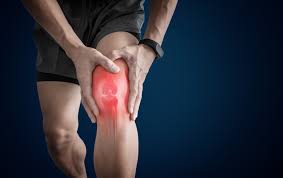Knee pain can significantly impact daily activities, whether due to injury, overuse, or natural wear and tear. Implementing lifestyle changes may help alleviate discomfort and maintain joint health. It can be beneficial to explore practical strategies for managing knee pain effectively.
Strengthen Muscles, Support Joints
Strong muscles provide the stability and support that knee joints rely on during movement, helping to prevent knee pain and injury. Strengthening exercises target groups like the quadriceps, hamstrings, and calves, which work together to stabilize the knee joint. Low-impact activities such as cycling or swimming build muscle strength without placing excess strain on the knees, reducing the risk of knee pain. Incorporating resistance training using body weight, bands, or light weights can also enhance joint support and minimize discomfort caused by imbalanced movement. A consistent strengthening routine can create a foundation of stability for healthier, pain-free knees.
Maintain a Healthy Weight
Excess weight places additional stress on the knees, as these joints bear a significant portion of the body’s weight during movement. Maintaining a healthy weight can reduce strain and potentially decrease knee discomfort. Here are some approaches to try:
- Adjust daily diet: Focus on balanced meals with lean proteins, whole grains, fruits, and vegetables. Controlling portion sizes can also help manage calorie intake.
- Engage in regular activity: Low-impact aerobic exercises such as walking, swimming, or biking can burn calories while being gentle on the knees.
- Seek professional guidance: Dietitians or fitness experts can provide tailored advice for sustainable weight management.
A focus on weight management not only benefits knee health but may contribute to overall well-being.
Improve Flexibility and Mobility
Flexibility and mobility play a key role in healthy, pain-free joints. Tight or stiff muscles can limit the natural range of motion and place added stress on the knees. Gentle stretching exercises tailored to the knees and surrounding muscles, such as yoga or targeted physical therapy routines, are effective in improving flexibility. Regular mobility exercises help maintain proper joint alignment, thereby limiting strain during everyday activities. Prioritizing range of motion movements can help reduce discomfort and facilitate easier, pain-free movement in the long term.
Modify Daily Movement Habits
How you move daily can greatly affect the strain placed on your knees. Minor adjustments to everyday habits can help manage and even reduce knee pain. Some practical changes you can make include:
- Choose supportive footwear: Avoid high heels or unsupportive shoes; opt for ones with good arch support and cushioning.
- Avoid prolonged positions: Whether sitting or standing, change positions often to prevent stiffness or overloading one joint for an extended period.
- Practice proper alignment: When bending or lifting, make sure your movements engage your hips and legs, rather than just your knees.
- Use assistive devices if necessary: Walking aids, such as canes or braces, can provide extra support, especially during flares of pain.
Implementing these small but effective adjustments can reduce unnecessary strain and potentially minimize discomfort during your daily routines.
Take Control of Your Knee Pain
While knee pain can be limiting, making thoughtful lifestyle modifications can help you take charge of your joint health. Strengthening muscles, maintaining a healthy weight, improving flexibility, and adapting daily habits are all actionable steps to support your knees. By focusing on these manageable changes, you can promote better movement and minimize discomfort. Contact a specialist today to consult with an expert and learn how to take the next steps toward healthier joints.
- Pedrovazpaulo Wealth Investment: Unlocking Financial Freedom Through Innovative Strategies
- EO Pis: A Comprehensive Guide to Environmental Objectives and Performance Indicators
- Premiumindo69: The Future of Digital Entertainment
- Macadamia Nut Milk: Health Benefits, Recipes, and Why It’s the Perfect Dairy-Free Alternative
- Hentquz: The Future of Productivity and Collaboration


